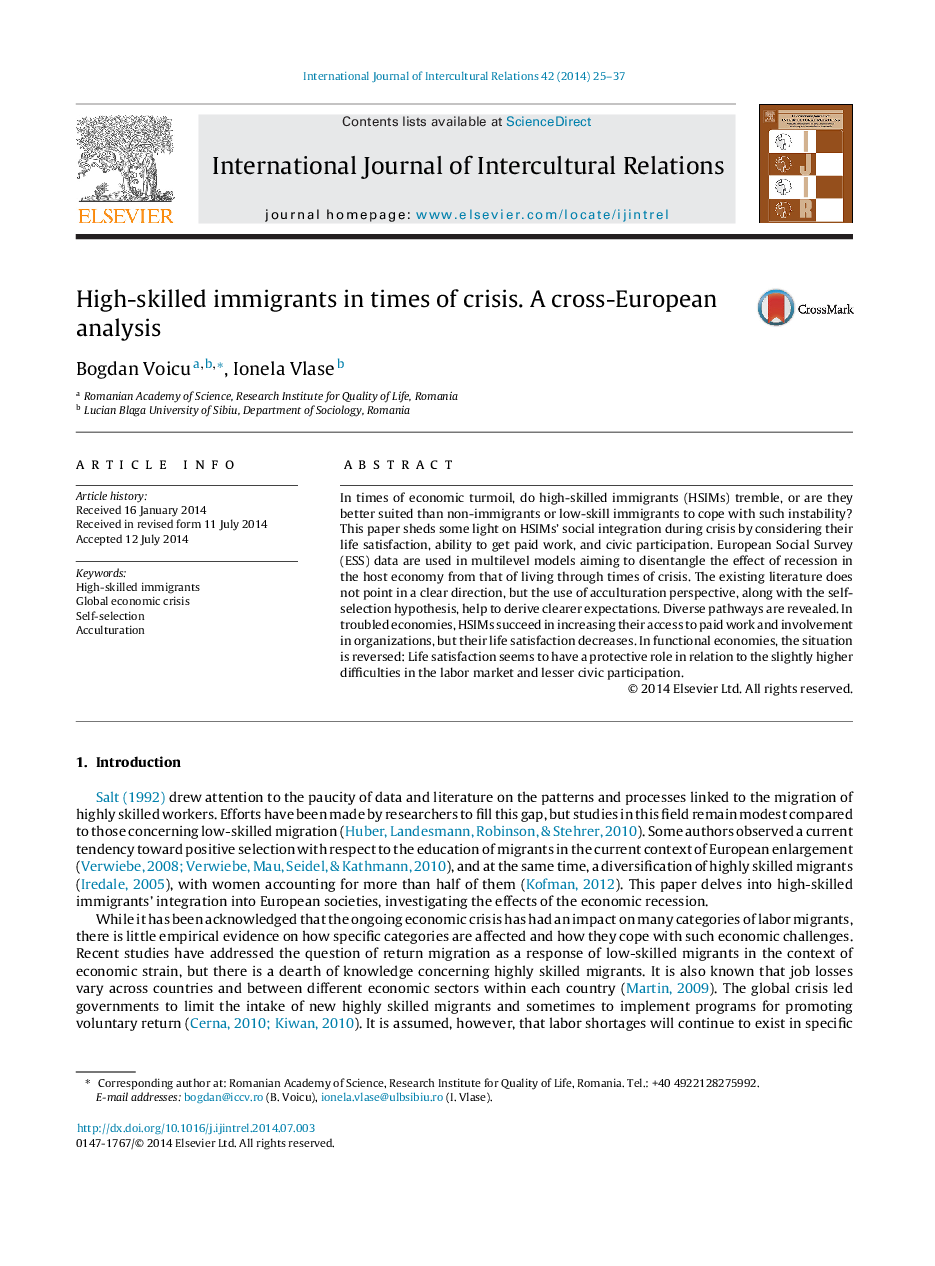| کد مقاله | کد نشریه | سال انتشار | مقاله انگلیسی | نسخه تمام متن |
|---|---|---|---|---|
| 946992 | 1475749 | 2014 | 13 صفحه PDF | دانلود رایگان |
• We explain how high-skilled immigrants (HSIM) cope with times of global crisis.
• The acculturation perspective and the self-selection hypothesis are used.
• HSIM are compared to other groups of migrants and native-born depending on economic growth.
• In troubled economies, HSIM increase employment and civic participation, and relatively lose in terms of life satisfaction.
• In functioning economies across Europe, the opposite findings hold true.
In times of economic turmoil, do high-skilled immigrants (HSIMs) tremble, or are they better suited than non-immigrants or low-skill immigrants to cope with such instability? This paper sheds some light on HSIMs’ social integration during crisis by considering their life satisfaction, ability to get paid work, and civic participation. European Social Survey (ESS) data are used in multilevel models aiming to disentangle the effect of recession in the host economy from that of living through times of crisis. The existing literature does not point in a clear direction, but the use of acculturation perspective, along with the self-selection hypothesis, help to derive clearer expectations. Diverse pathways are revealed. In troubled economies, HSIMs succeed in increasing their access to paid work and involvement in organizations, but their life satisfaction decreases. In functional economies, the situation is reversed: Life satisfaction seems to have a protective role in relation to the slightly higher difficulties in the labor market and lesser civic participation.
Journal: International Journal of Intercultural Relations - Volume 42, September 2014, Pages 25–37
